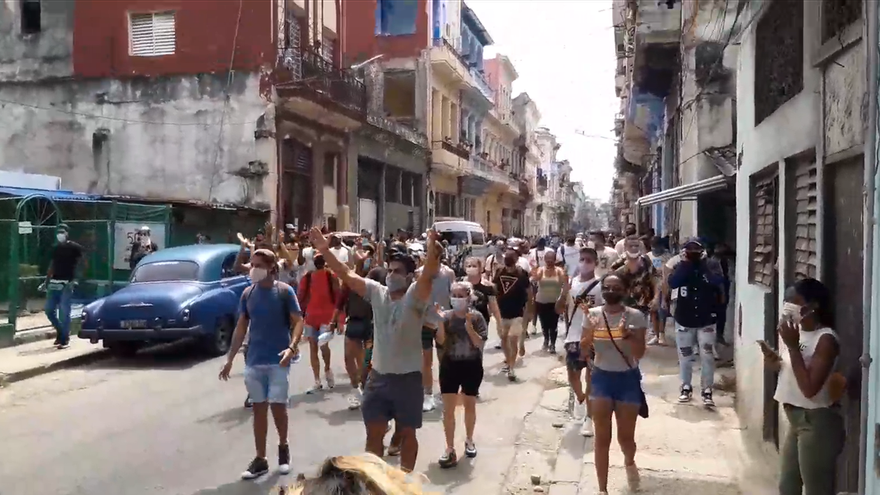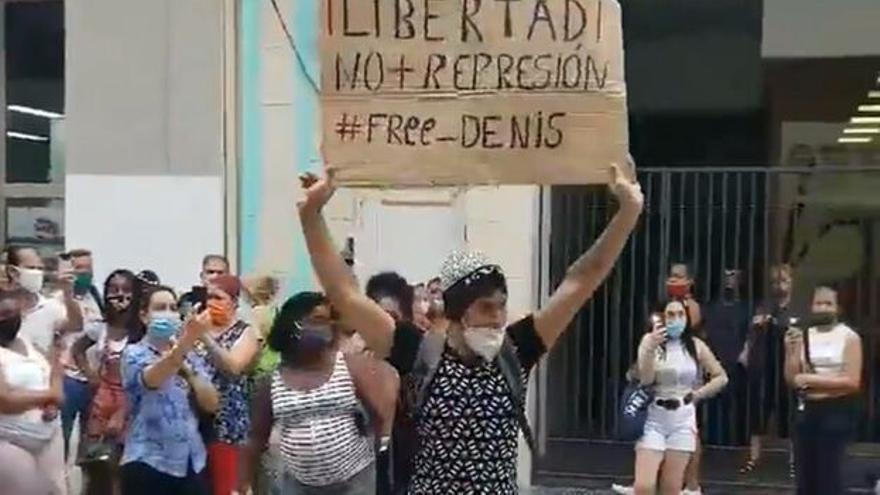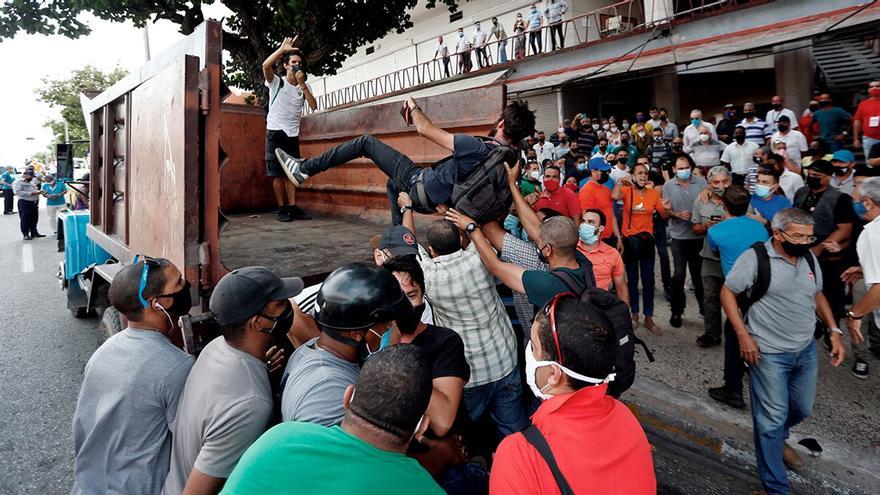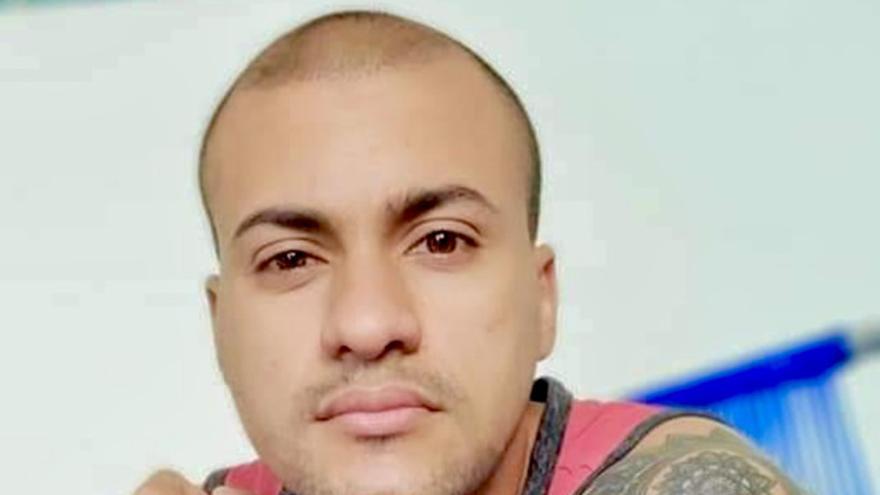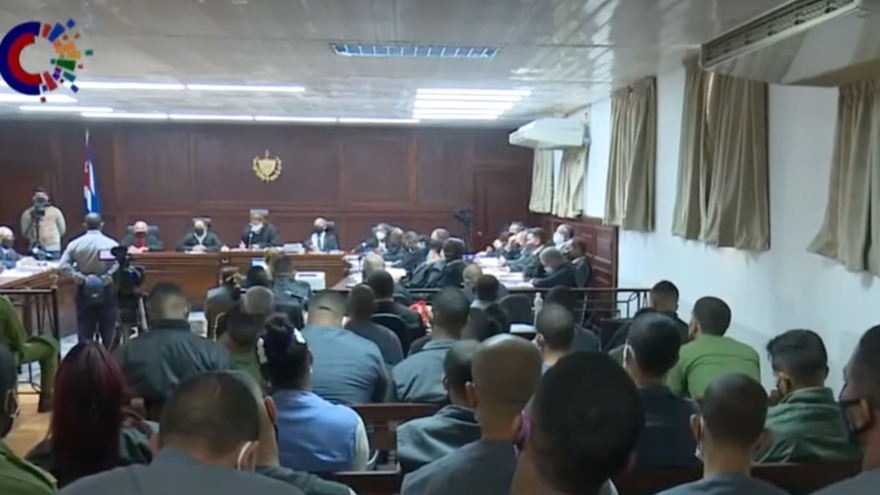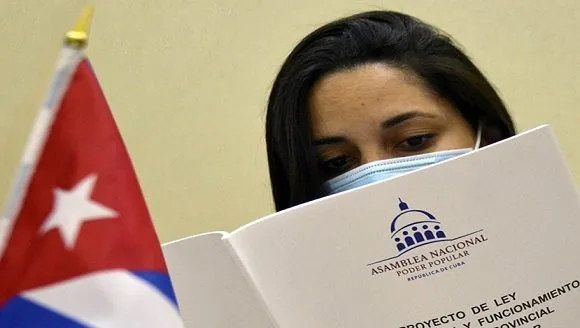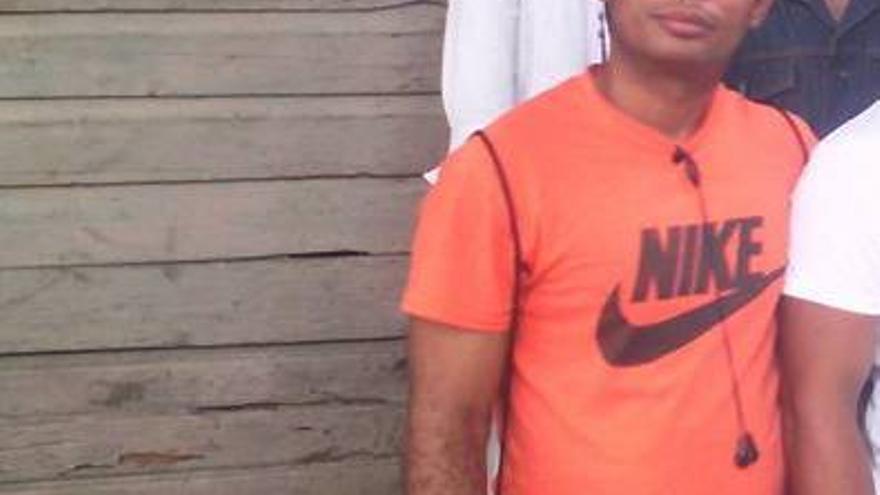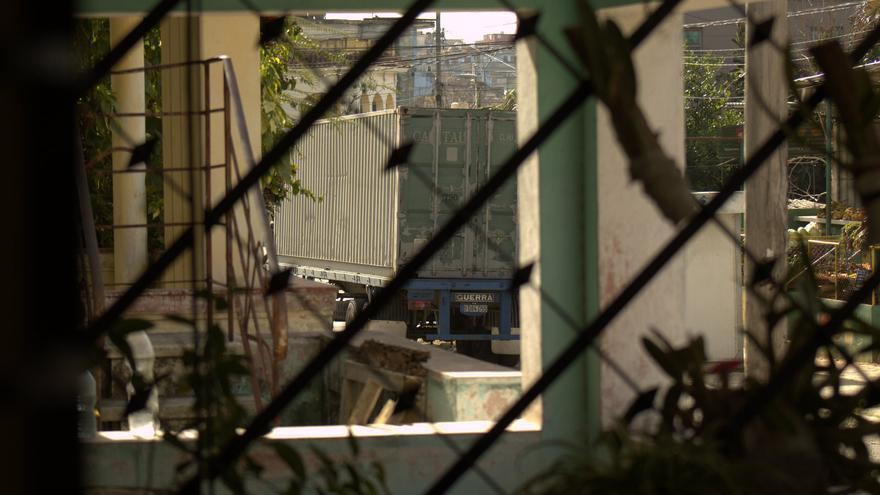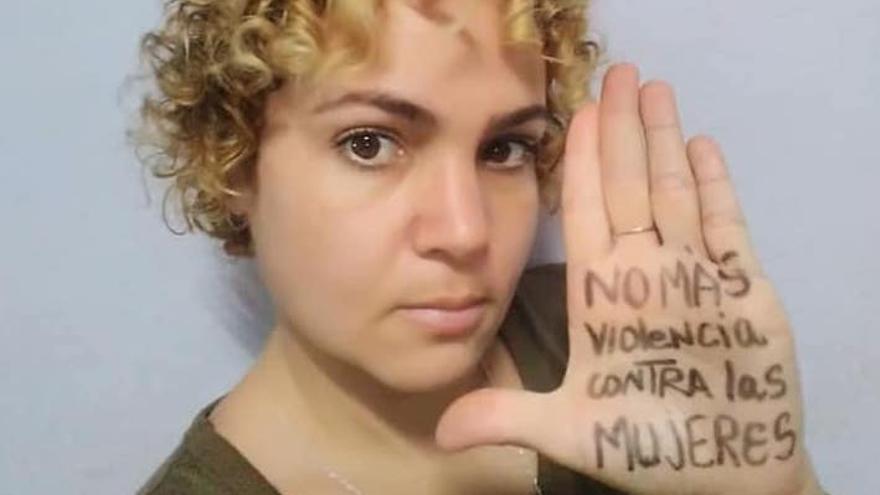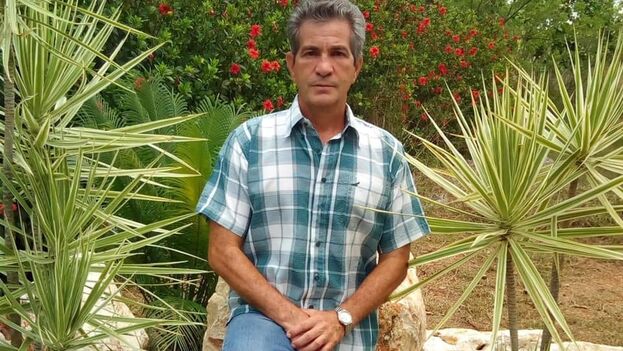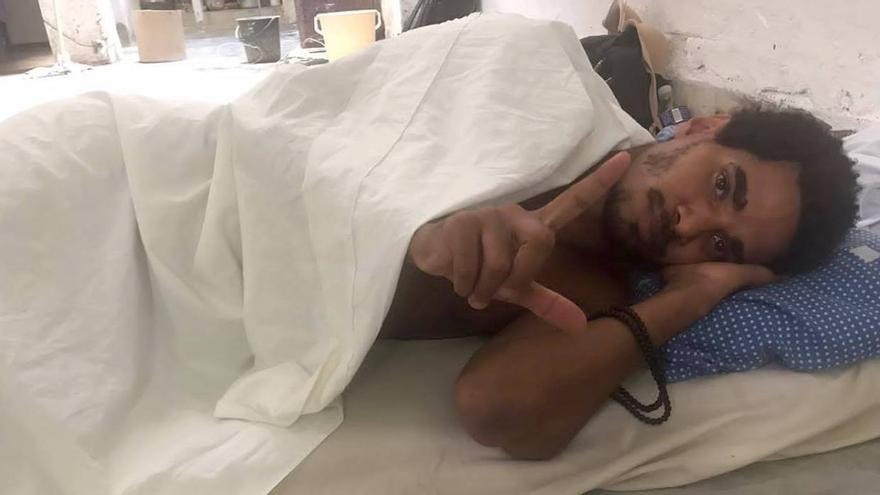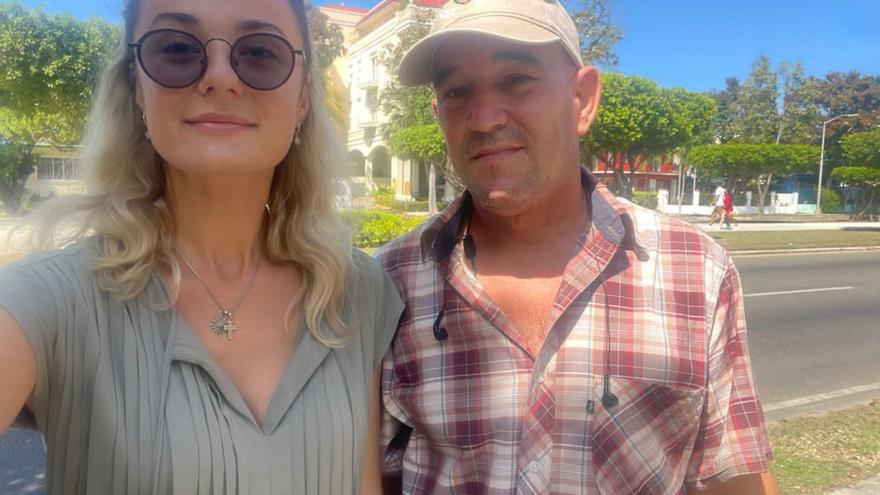
![]() 14ymedio, Havana, April 4, 2022 — Leodán Pérez Colón, Yoel Castillo Cervantes and Yanderley Quesada Marín, sentenced to several years in jail in Sancti Spíritus for protesting on July 11, did not even set foot on the street that day.
14ymedio, Havana, April 4, 2022 — Leodán Pérez Colón, Yoel Castillo Cervantes and Yanderley Quesada Marín, sentenced to several years in jail in Sancti Spíritus for protesting on July 11, did not even set foot on the street that day.
According to the sentencing document, signed on January 18th and accessed by 14ymedio on Monday, it was proven that on that day Pérez Colón, from within his home on July 16th, streamed a video “to his contacts”–not even on social media–in which he referred to leader Miguel Díaz-Canel as a “motherfucker,” “snot-nosed dick,” “son of a bitch,, and “dickhead bastard,” which he, according to the document, “continued for several minutes.”
Along with him were his friends Cristian Enrique García Rodríguez, Ernesto Alexis Rojas Pérez, and José Antonio Rojas Pérez, who were also arrested but not convicted, and who testified against him, as per the judicial document.
That video in particular was used by Cuban national television to smear the protesters. In a post published before the trial of the three detainees, which took place on December 27th, Sancti-Spíritus-based activist Néstor Estévez denounced that the images, as well as the messages used to incriminate the defendants, “came from private audios in a WhatsApp group accessed by G2 after tapping the phones of the group’s members.”
The sentencing document states, in effect, that thanks to “the certifications of the telecommunications company,” Etecsa, “we became aware of the ownership of the telephone lines belonging to the accused, devices which were used by them in the perpetration of these events, and we learned, through the opinions of experts in criminal informatics, of the resources and content published on the internet.” continue reading
As stated in the legal document, 22-year-old Pérez Colón, created a WhatsApp group called “Todos por la libertad” [“Everyone for Freedom”], to which he invited the other two accused, 21-year-old Yoel Castillo and Yoanderley Quesada, 25, who accepted the invitation. In that group, the first convict [Pérez Colón], sent messages “encouraging the use of incendiary bottles named ’molotoff [sic] cocktails’, screws, rocks launched with bows or sharpened forks against members of the Ministry of the Interior and other institutions charged with preserving the social order in the city.”
In this way, the text continues, ” the user named ’Yuma Walter’ to whom he sent a message that said ’I am finding people to form a good team’,” and through Messenger, he wrote to user “Irete Amir Olmo Eleguasito Bernal” telling them ’I am looking for people from Bayamo Kilo 12, this is fire against the PNR, Díaz Canel motherfucker.”
Another group he created on WhatsApp, still according to the sentencing document, is “Todo por la libertad EUA” [“All for Freedom USA”], to which he added “citizens Lisandra Enrique Guerras and Pedro Amir Tanquero Bernal, both of whom live abroad.”
The woman named Lisandra, the sentencing document states, “accessed the group and published several photos in which molotoff [sic] cocktails, screws and bows can be seen and wrote, ’use this, don’t be intimidated, you don’t have weapons, but there are ways, do not allow anyone to be taken, throw arrows at them, stab them with knives, there are more of you than the lot of those police snitches.”
There is no evidence that any of those who were summoned organized any violent acts, except for, as announced in the group, heading “to Villalla’s house, everyone” (as written by Biyaya, the nickname by which Pérez Colón is known). Neither is there any trace of these accusations among those compiled in the list of prisoners maintained by Justicia 11J, according to which Pérez Colón had thrown stones at a nearby MLC (hard currency) store.
Nonetheless, Pérez Colón, who has a history of armed robbery for which he had served several years in jail, was sentenced to a total of five years for associating to commit a crime and contempt, and Quesada Marín and Castillo Cervantes, to two years and one year and ten months, respectively, only for associating to commit a crime (reduced in the cases of Castillo and Pérez for their time served in pre-trial detention.)
In addition, all of their cell phones were confiscated.
In a separate case, 14ymedio also accessed another unpublished sentencing document from Sancti Spíritus, which on October 18th sentenced Luis Mario Niedas Hernández to three years in jail for “contempt of a continuous nature.”
The events described in the document indicate that what he did was to stream three different videos on January 29, July 10 and on the following day, in which he uttered, among other phrases, “that he’d arrest all of them, that the Minister of Culture is shameless, that the State Security agents are State Insecurity and state terrorists,” “that the country’s president is a thief and a demagogue,” or referring to Cuba’s leaders, “that they are freeloaders, shameless, corrupt, they steal all of the country’s resources and deposit them abroad, the sons of bitches that rule this country, who live like capitalists.”
Niedas Hernández, as Sancti-Spíritus-based activist Néstor Estévez explained to this daily, was the only one of the 42 detainees in Sancti Spíritus who truly took to the streets on July 11th.
His sentencing document says that outside his house, he streamed a video where he said, “Díaz-Canel, motherfucker, we want a country, not a farm led by four sons of bitches,” and that, later, “he headed toward nearby buildings located in Olivos I, in the municipality and province of Sancti Spríritus and from there walked toward the multi-family buildings number 2 and 3 located near the Provincial Government offices and began loudly shouting other phrases ’down with Díaz-Canel, Díaz-Canel son of a bitch, I shit on Díaz-Canel, Díaz-Canel motherfucker’.”
In the Nieves-Morejón prison, where he is currently held, Niedas has experienced isolation and mistreatment in punishment cells.
The 31-year-old young man was arrested on July 11th, but he had previously been harassed and pressured for being politically active. He told the story himself in a chronicle published by Yucabyte just days before the protests that Sunday. “My activism, like that of many others, began with the pressures of the regime,” he wrote. “It was enough for me to support the causes defended by Movimiento San Isidro [San Isidro Movement] and 27N (27 November) on social media for all the weight of the arbitrariness of the dictatorship to come down upon me. Because, yes, publishing a simple Facebook post in Cuba that does not have the approval of the government, implies almost the same thing as standing in front of the provincial headquarters of the Communist Party with a sign demanding the president’s resignation. There is no freedom, not even in cyberspace.”
Translated by: Silvia Suárez
____________
COLLABORATE WITH OUR WORK: The 14ymedio team is committed to practicing serious journalism that reflects Cuba’s reality in all its depth. Thank you for joining us on this long journey. We invite you to continue supporting us by becoming a member of 14ymedio now. Together we can continue transforming journalism in Cuba.

